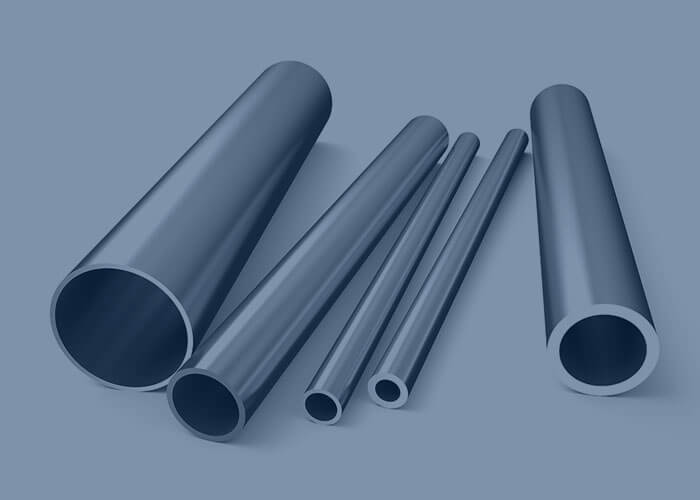Introduction: Why Inconel 601 Excels in Corrosive Environments
Inconel 601 is a high-performance nickel-chromium alloy renowned for its remarkable resistance to oxidation and corrosion. Its versatility makes it a popular choice for industrial applications involving harsh chemical and environmental conditions. Leading Inconel suppliers often recommend this material for scenarios where durability and resistance are critical.
In this guide, we’ll explore the properties that make Inconel 601 suitable for corrosive solutions, its applications, and how to maximize its long-term durability.
1. The Unique Composition of Inconel 601
The superior corrosion resistance of Inconel 601 stems from its carefully engineered chemical composition.
- Nickel-Chromium Base: The alloy consists of approximately 58-63% nickel and 21-25% chromium, providing a strong protective oxide layer that resists attack from corrosive solutions.
- Added Elements: Aluminum and iron are included to enhance oxidation resistance and structural stability.
- Key Properties: Inconel 601 is not only resistant to corrosion but also excels in high-temperature environments, making it a favorite among Inconel suppliers.
This unique composition enables Inconel 601 to maintain its integrity even in aggressive chemical settings.
2. Resistance to Corrosive Solutions
Inconel 601 is specifically designed to withstand various corrosive environments, making it a versatile material for industrial applications.
- Aqueous Corrosion: The alloy shows excellent resistance to acids, alkalis, and chlorides, which are common in chemical processing industries.
- Oxidation and Scaling: Thanks to its high chromium content, Inconel 601 forms a stable oxide layer that prevents oxidation at elevated temperatures.
- Sulfur-Containing Environments: Many Inconel suppliers highlight its resilience in atmospheres with sulfur compounds, where conventional materials fail.
Its ability to endure in diverse corrosive solutions ensures long-term durability and reduces the need for frequent replacements.
3. Applications of Inconel 601 in Corrosive Settings
Industries that operate in corrosive conditions often rely on Inconel 601 to ensure equipment reliability and longevity.
- Chemical Processing: Heat exchangers, reactors, and piping systems made of Inconel 601 can resist acidic and basic chemicals.
- Petrochemical Industries: The alloy is used in components exposed to sulfur-containing gases, ensuring consistent performance.
- Power Generation: Inconel 601 is utilized in steam generators and heat-treating equipment, where corrosive byproducts are prevalent.
- Marine Applications: Its resistance to saltwater and brine makes it a preferred choice for marine heat exchangers and exhaust systems.
The adaptability of Inconel 601 across these sectors showcases its value as recommended by leading Inconel suppliers.
4. Best Practices for Maximizing Durability
To ensure the long-term durability of Inconel 601 in corrosive solutions, proper handling and usage are critical.
- Selection of Trusted Inconel Suppliers: Start with certified suppliers to obtain high-quality materials that meet industry standards.
- Proper Fabrication: Avoid contamination during machining and welding to preserve the alloy’s corrosion-resistant properties.
- Surface Treatments: Apply protective coatings or polish surfaces to minimize localized corrosion in extreme environments.
- Regular Maintenance: Conduct periodic inspections to detect early signs of wear and ensure the material’s integrity.
Adopting these practices can significantly extend the service life of Inconel 601 in demanding conditions.
5. Challenges and Considerations
While Inconel 601 offers unmatched corrosion resistance, certain considerations must be kept in mind for optimal performance.
- Cost: As a premium alloy, Inconel 601 is more expensive than traditional materials. Partnering with reliable Inconel suppliers can ensure cost-effective procurement.
- Welding Difficulties: The alloy’s high nickel content can make it challenging to weld without specialized techniques.
- Environmental Factors: In environments with molten salts or concentrated acids, additional measures may be necessary to protect the alloy.
Understanding these challenges allows for informed decision-making and effective utilization of Inconel 601.
6. Comparing Inconel 601 with Alternative Alloys
When selecting materials for corrosive environments, comparing Inconel 601 to alternatives can highlight its advantages.
- Stainless Steel: While stainless steel is cost-effective, it lacks the high-temperature and oxidation resistance of Inconel 601.
- Incoloy Alloys: Incoloy, another popular choice from Inconel suppliers, is less resistant to extreme temperatures but offers good performance in specific corrosive settings.
- Titanium Alloys: Titanium is highly resistant to corrosion but may not perform as well as Inconel 601 in high-temperature environments.
This comparison underscores why industries consistently choose Inconel 601 for critical applications.
7. The Role of Inconel Suppliers in Ensuring Success
Reliable Inconel suppliers play a vital role in providing materials that meet stringent requirements for corrosive environments.
- Material Certification: Trusted suppliers provide certifications to confirm the alloy’s compliance with industry standards.
- Custom Fabrication: Many suppliers offer tailored solutions, such as pre-fabricated shapes and heat-treated components.
- Technical Support: Reputable suppliers assist with material selection and provide guidance on fabrication and maintenance practices.
Collaborating with experienced Inconel suppliers ensures the success of projects using Inconel 601.
Conclusion: The Durability of Inconel 601 in Corrosive Solutions
Inconel 601 stands out as a superior material for applications in corrosive environments due to its exceptional chemical and mechanical properties. Its resistance to oxidation, scaling, and aqueous corrosion makes it invaluable in industries ranging from chemical processing to marine engineering. By sourcing the material from reliable Inconel suppliers and following best practices for usage and maintenance, industries can maximize its durability and performance.
As the demand for high-performance alloys grows, Inconel 601 continues to set the benchmark for reliability and longevity in challenging conditions. For industries seeking sustainable and long-term solutions, this alloy remains an unbeatable choice.
Keep an eye for more news & updates on Qiuzziz!
